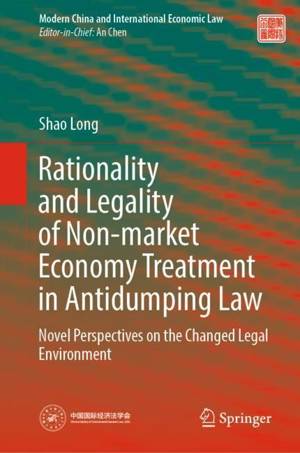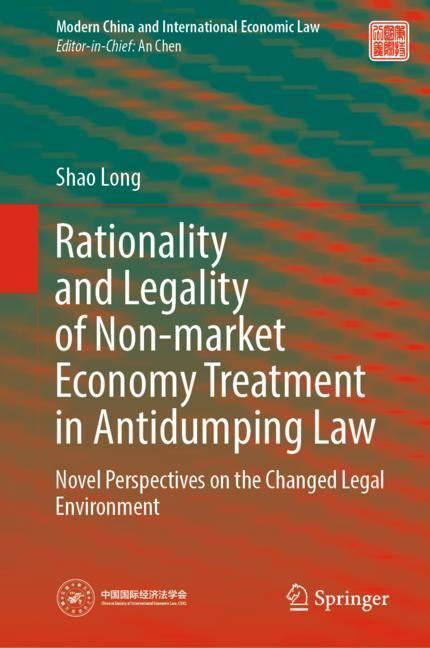
- Afhalen na 1 uur in een winkel met voorraad
- Gratis thuislevering in België
- Ruim aanbod met 7 miljoen producten
- Afhalen na 1 uur in een winkel met voorraad
- Gratis thuislevering in België
- Ruim aanbod met 7 miljoen producten
Rationality and Legality of Non-Market Economy Treatment in Antidumping Law
Novel Perspectives on the Changed Legal Environment
Shao LongOmschrijving
This book serves as a comprehensive study of and provides rich insight into non-market economy treatment, including its past, present, and estimated future practices and implications. It explores the introduction of the market and non-market economy dichotomy into international trade law. It traces the origin and development of non-market economy treatment against changing international economic and political background. The book examines this treatment in light of the rationale underlying anti-dumping, reflecting its alleged significance of ensuring fair trade. It in particular investigates the varied non-market economy treatment practices responding concerns of China's rising as a large state-led economy, analyzing the deviation of NME treatment into an all-in trade tool. The book argues against preconceived bias and unilateral protectionism. It highlights the universal existence of government involvement in the market and proposes objective assessment of its impact on fair trade.Final proposition of the book is depoliticizing trade, reforming comprehensively international trade rules to carefully calibrate different values, including promoting fairness and enhancing global social welfare. It envisages a multi-dimension overhaul of international trade rules to rebalance trade interests, rather than roughly labeling an economy to confer different treatment, the practices of which lead to separation and chaos. The book is of particular relevance and interest to economies-in-transition, and among policy makers, academicians and legal practitioners engaged in trade remedies and trade rules reconstruction.
Specificaties
Betrokkenen
- Auteur(s):
- Uitgeverij:
Inhoud
- Aantal bladzijden:
- 235
- Taal:
- Engels
- Reeks:
Eigenschappen
- Productcode (EAN):
- 9789819982912
- Verschijningsdatum:
- 4/01/2024
- Uitvoering:
- Hardcover
- Formaat:
- Genaaid
- Afmetingen:
- 156 mm x 234 mm
- Gewicht:
- 526 g

Alleen bij Standaard Boekhandel
Beoordelingen
We publiceren alleen reviews die voldoen aan de voorwaarden voor reviews. Bekijk onze voorwaarden voor reviews.












